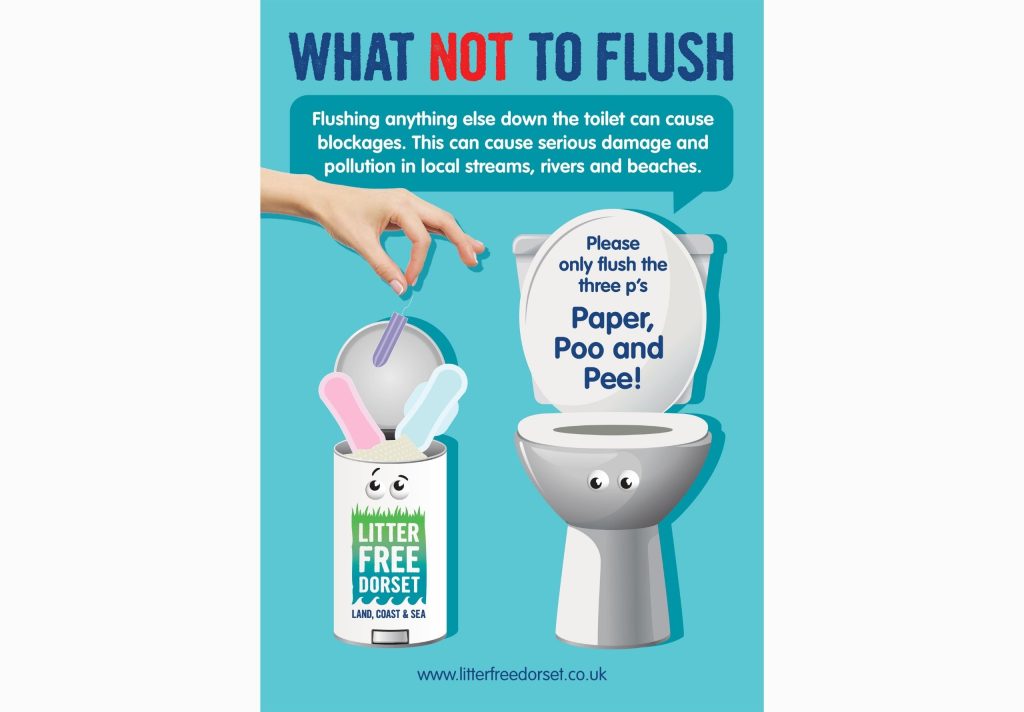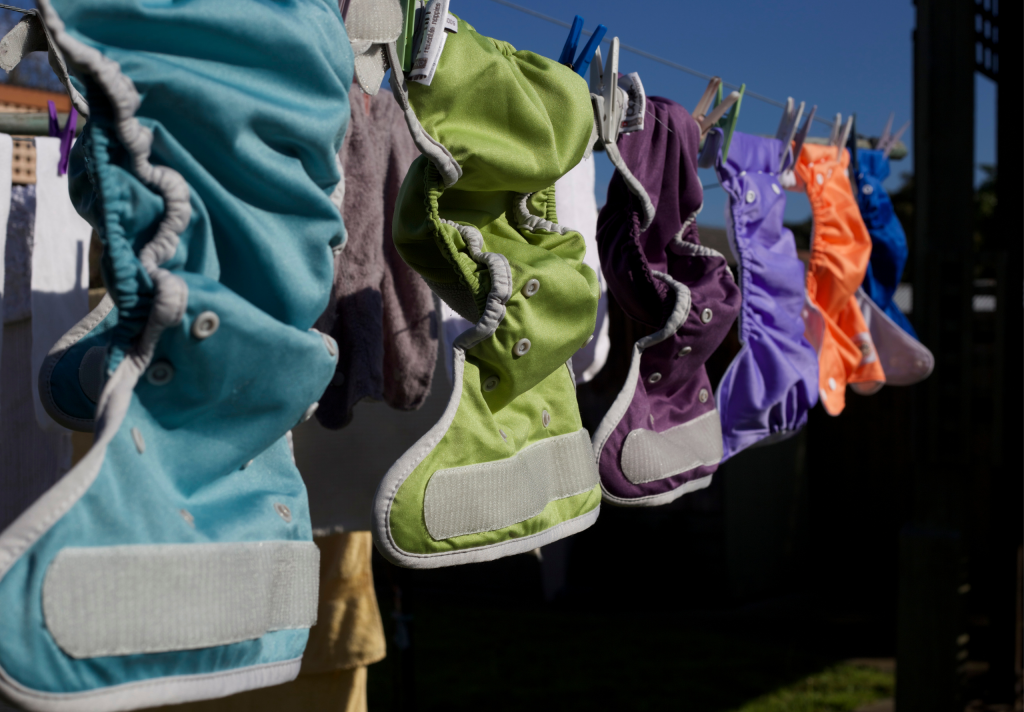

If it didn’t come from you, don’t flush it down the loo!
Only paper, poo and pee should be flushed to help keep sewers clean and bathing water quality excellent.
If you have a café, office or even a campsite – using our ‘what not to flush’ poster could save you time and money when it comes to unblocking that bog.
Feel free to download or get in touch for one to be sent to your business.

The use of wet wipes has become more popular, with a range of styles available including eye make-up removers, baby wipes and ‘toilet’ wipes. Wet wipes don’t disintegrate like toilet paper when flushed. They typically contain plastic so, once they reach the sea, they last for a long time, causing havoc with marine life.
It takes 1 nappy 500 years to decompose! So we all need to try and make the change and find ways to overcome barriers such as time! Each year there are around 3,300 births recorded in Dorset and, at an estimated 2,200 nappies per baby per year, this means there are about seven million used disposable nappies entering the Dorset household waste stream every year. Sending all used disposable nappies in Dorset to landfill presently costs the councils around £600,000 per year.
We need to move away from single use. If you’re a parent and can try and use a reusable nappy a couple of times a week – you are a hero in our eyes. To find out more about the ‘Reusable nappy incentive scheme’ visit Dorset Councils website.

Every month, women flush and throw away hundreds of disposable period products and their packaging. A big-brand pack of 14 menstrual pads contains the same amount of plastic as 5 carrier bags. Around 2.5 million tampons, 1.4 million pads and 700,000 panty liners are flushed every single day here in the UK!
City to sea’s campaign #PlasticFreePeriods looks at alternatives so we can find the best sustainable option for our bodies.
You can also save money by switching to reusables, compared to single-use items. For example, each period can cost on average £5. That’s £65 a year and £2,400 over a lifetime. In comparison, a menstrual cup costs up to £23 and can last up to 10 years!
To help you save even more money Dorset Council have teamed up with brands to offer you 15% off reusable period products!
